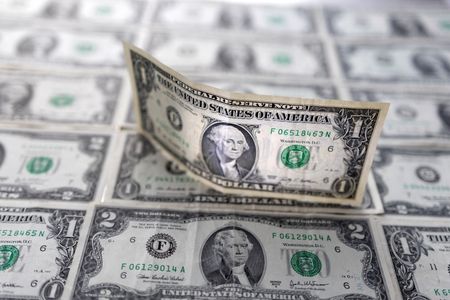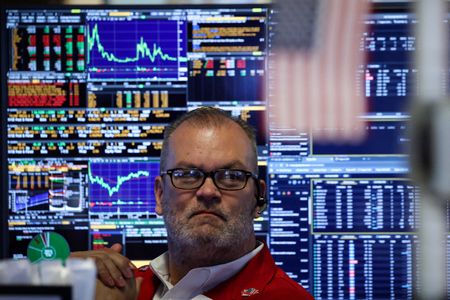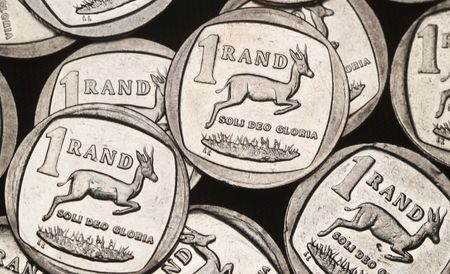By Karen Brettell
NEW YORK (Reuters) -The dollar gained on Wednesday after Federal Reserve Chair Jerome Powell pushed back against market pricing for another rate cut at the U.S. central bank’s December meeting, after the U.S. central bank lowered rates as expected.
Wednesday’s rate cut drew dissents from two policymakers, with Governor Stephen Miran again calling for a deeper reduction in borrowing costs and Kansas City Fed President Jeffrey Schmid favoring no cut at all given ongoing inflation.
“The dissent from Schmid is hawkish, that captures the sentiment from a few Fed officials so there could be some pressure on Powell to hold back market pricing for a December cut,” said Adam Button, chief currency analyst at investingLive in Toronto.
Powell said that U.S. central bank officials are struggling to reach a consensus about what lies ahead for monetary policy and that financial markets should not assume another interest rate cut will happen at the end of the year.
Odds of a cut at the Fed’s December meeting are now at 62%, down from around 85% earlier on Wednesday.
The U.S. central bank further announced that it will restart limited purchases of Treasury securities after money markets showed signs that liquidity was becoming scarce, a condition the U.S. central bank has pledged to avoid.
Traders are also focused on trade talks between the U.S. and China, with U.S. President Donald Trump due to meet China’s leader Xi Jinping on Thursday.
The dollar index was last up 0.63% on the day at 99.28, with the euro down 0.56% at $1.1585.
Both the European Central Bank and the Bank of Japan are expected to hold rates steady on Thursday.
The Japanese yen weakened 0.56% against the greenback to 152.86 per dollar. It had strengthened earlier after U.S. Treasury Secretary Scott Bessent urged Japan’s government to give the central bank scope to raise interest rates, escalating his warning to Tokyo against keeping the yen too weak through prolonged low borrowing costs.
Bessent, who was in Japan with Trump for talks with the newly-formed government of Prime Minister Sanae Takaichi, has repeatedly criticised the BOJ for its slow pace of rate hikes.
STERLING AND AUSSIE
Britain’s pound was among the biggest losers as traders also adjusted for rising odds that the Bank of England will cut rates next week.
“The Bank of England is squarely focused on inflation. But in terms of their characterization of the outlook, one of the pieces that they’ve been highlighting has been the labor market,” said Eric Theoret, FX strategist at Scotiabank in Toronto.
“The data definitely looks to have softened. And so with that lower inflation print I think it gives a bit more of a green light for the Bank of England to ease,” Theoret said.
Data last week showed that British inflation unexpectedly held steady in September. A report earlier this month also showed that British workers’ pay grew at the weakest pace since 2022 and the jobless rate nudged higher.
Goldman Sachs said on Tuesday it expected the BoE to cut rates next month, having previously seen no easing this year.
Sterling was last down 0.9% against the dollar at $1.3151 and reached $1.3137, its lowest since May 12.
The Canadian dollar was little changed on the day, after earlier hitting a one-month high.
The Bank of Canada reduced its key overnight interest rate to 2.25% on Wednesday, as widely expected, and signaled this could mark an end to its cutting cycle unless the outlook for inflation and the economy changed.
In cryptocurrencies, bitcoin fell 1.37% to $111,295.
(Reporting by Karen Brettell; Additional reporting by Kevin Buckland and Alun John; Editing Kim Coghill, Mark Potter, Ed Osmond and Deepa Babington)









